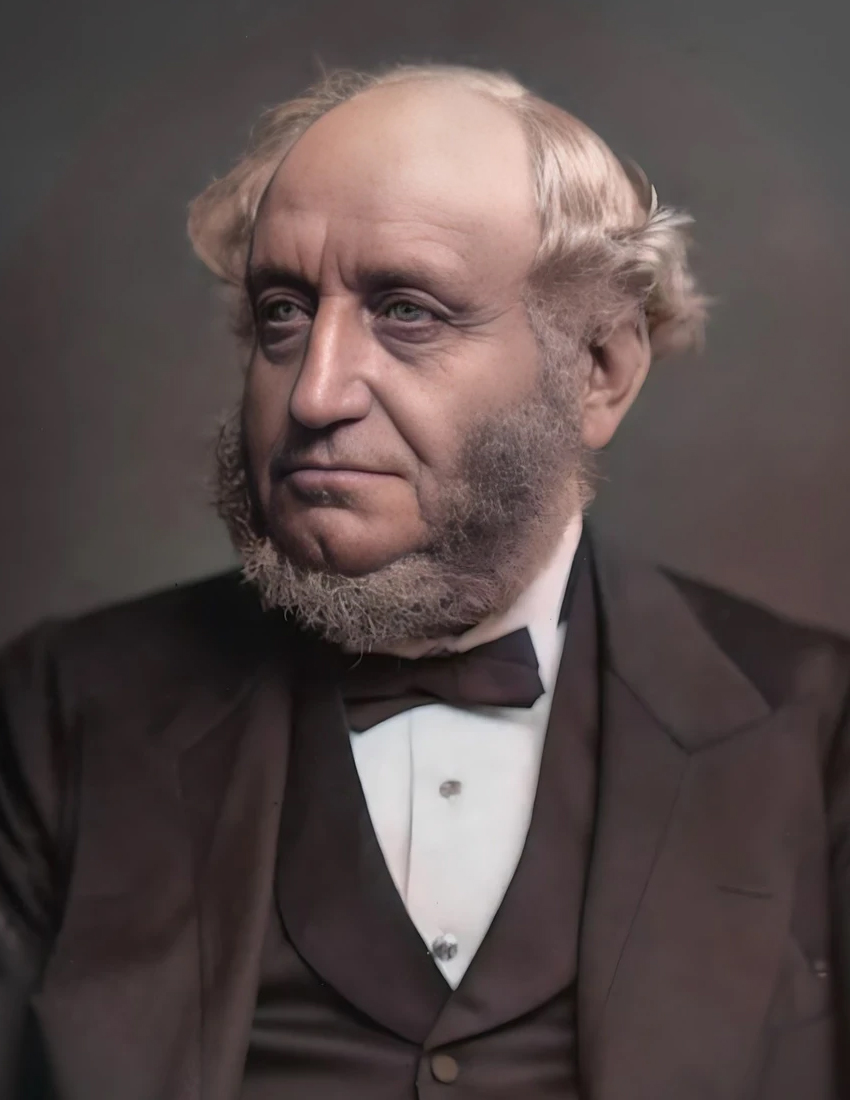Born: March 27, 1816, Canterbury, England.
Died: December 9, 1893, the Towers, Windlesham, Surrey, England.
Buried: St. George’s Chapel, Windsor, England.
George Job Elvey

Hymns by George Elvey
Sir George Job Elvey: A Life Devoted to Sacred Music
Sir George Job Elvey was born on March 29, 1816, in Canterbury, England, into a family with a rich musical heritage. As a young boy, he joined the choir of Canterbury Cathedral, where his older brother Stephen served as the Master of the Boys. Under Stephen’s guidance, George’s prodigious talent began to flourish.
Education and Early Career
When Stephen was appointed organist of New College, Oxford, George followed him there to further his musical education. He progressed so rapidly that by the age of seventeen, he was already an expert organist.
In 1835, at the remarkably young age of nineteen, Elvey was appointed Organist and Master of the Choristers at St George’s Chapel, Windsor, beating out more experienced candidates such as Samuel Wesley for the prestigious post.
Transforming the Choir at St George’s Chapel
Upon assuming his new role, Elvey found the choir in a “very disordered state.” However, through his diligent efforts, he soon restored order and discipline, elevating the choir’s performance to such a level that it became renowned as one of the finest in the country.
Under Elvey’s leadership, the choir not only performed in St George’s Chapel but also traveled to sing at significant national events, such as the opening ceremony of the Great Exhibition and the funeral service of the Duke of Wellington.
Compositions and Famous Hymn Tunes
In addition to his duties as an organist and choirmaster, Elvey was a prolific composer. He created numerous anthems, hymns, and oratorios that continue to be cherished by church choirs worldwide. Some of his most famous compositions include:
- Bow Down Thine ear, O Lord, which won him the Gresham Gold Medal in 1834
- The souls of the Righteous, a poignant funeral anthem written in memory of Prince Albert
- DIADEMATA, a hymn tune best known for “Crown Him with Many Crowns,” which remains widely used in Christian worship services
- ST. GEORGE’S WINDSOR, associated with the hymn “Come, Ye Thankful People, Come” and still popular in various hymnals
Royal Appointments and Knighthood
Elvey’s exceptional talents caught the attention of the royal family, and he was appointed as Private Organist to Queen Adelaide, wife of King William IV. Later, he would serve Queen Victoria in the same capacity. In 1871, in recognition of his immense contributions to sacred music, Elvey was knighted, a well-deserved honor.
Legacy and Lasting Impact
Throughout his life, Elvey remained a humble servant of God, dedicating his musical gifts to glorifying the Almighty. He most likely viewed music as a means of bringing joy and peace to the hearts of the faithful, with its power to uplift the soul.
Sir George Job Elvey passed away on December 9, 1893, leaving behind a legacy that continues to inspire and enrich the lives of countless worshippers. His timeless melodies and unwavering devotion to sacred music serve as a shining example for all those who seek to use their talents in service of the divine.
As we remember this remarkable man, let us give thanks for the gift of music and strive to follow in his footsteps, making our own lives a joyful song of praise to the Lord.
“Sing unto the Lord a new song; sing unto the Lord, all the earth. Sing unto the Lord, bless his name; shew forth his salvation from day to day.” – Psalm 96:1-2 KJV

